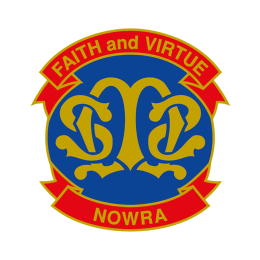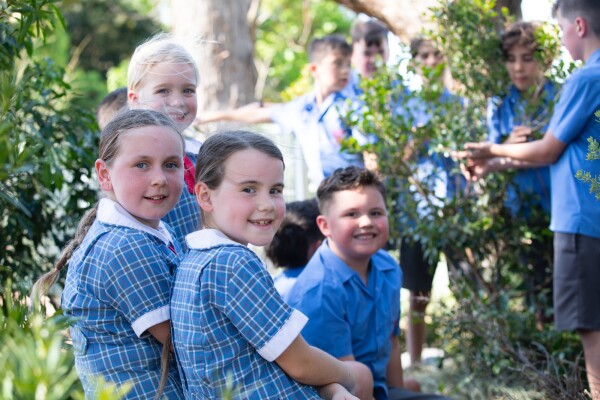
St Michael's Nowra
A Catholic Parish Primary School
 At St Michael's we assist students to work towards their full potential spiritually, physically, socially, intellectually and emotionally.
At St Michael's we assist students to work towards their full potential spiritually, physically, socially, intellectually and emotionally.
We promote our school as God's Place – a place of belonging, respect, justice, hope, celebration and quality teaching and learning.
The protection of the students entrusted to our care is a very serious responsibility. In taking up this responsibility, the staff at St Michael's:
As part of the funded school chaplaincy program, our school Pastoral Care Worker is available at the school two days per week. The Pastoral Care Worker supports the school community in the following ways:
The school’s Case Collaboration team is available for any teacher within the school that requires further assistance or guidance with an individual student’s learning, social or emotional wellbeing.
Meetings take place fortnightly through a booking system. The teacher provides evidence of their concerns after discussion with the parents, including work samples, in-class assessment results and other reports available (for example, from speech pathologists, occupational therapists, psychologists, etc.). Through discussion, some goals and strategies are established to support the student. Depending on the strategies, a further review meeting might be required.
At least once per year, the Seasons for Growth program is offered for children who are suffering from grief, loss or separation. Parents are informed about the program via an expression of interest letter, sent out a number of weeks prior to the Seasons program commencing. Once a parent has returned a signed Parent Permission slip to the school then small groups are formed. Students are withdrawn from the classroom once per week by the Pastoral Care Worker for each session The program runs for approximately six weeks.
For a variety of reasons students might require medication to be administered whilst at school. Legally this requires a Consent to Administer Medication form to be completed and returned to the school office.
Read the CEDoW Administration of Medication in Schools Policy and Procedure
Download our Request For School to Administer Medication Form
The Defence School Transition Aide (DSTA) at St Michael’s Catholic Primary School is Julie Lawrence. The DSTA program is an initiative funded by the Australian Government aimed at reducing impact on students from Australian Defence Force (ADF) families resulting from mobility and parental absences.
When transition to a new school occurs, due to mobility, the DSTA is a point of contact to provide information and prepare an application for education assistance when academic gaps arise.
Social and emotional wellbeing programs are provided for students impacted by military mobility and parental absence. These programs include:
Term 1 – Welcome, new students and families; Welcome HMAS Albatross EXPO
Term 2 – Morning Tea for ADF families; Anzac Day Ceremony; Recognition Certificates and Medals Presentation School ADF Parachute Display/helicopter landing (if available)
Term 4 – Remembrance Day Liturgy
Resources
Strategies for Helping Children with Deployment
Parents' Guide to the Military Child
Assisting Kids To Cope with Deployment
A Guide to Helping Children and Youth Cope With Deployment of a Parent
Visit the Defence Community Organisation website for more information and resources for Australian Defence Force children and families.
Living as an authentically Catholic community, we strive to be welcoming, inclusive and compassionate to all. In addition to the wellbeing of students at St Michael's, the pastoral care and wellbeing of our parents and families is important to us and gives witness to our Catholic faith in action.
When families are in need of extra assistance, whether financial, emotional or otherwise, the school is here to provide support to families in a variety of ways while maintaining confidentiality and dignity.
Families are encouraged to speak with the principal or a member of the school leadership team if they feel they need support of any kind.
Read more about our partnership with parents in the Parent-School Partnership Framework